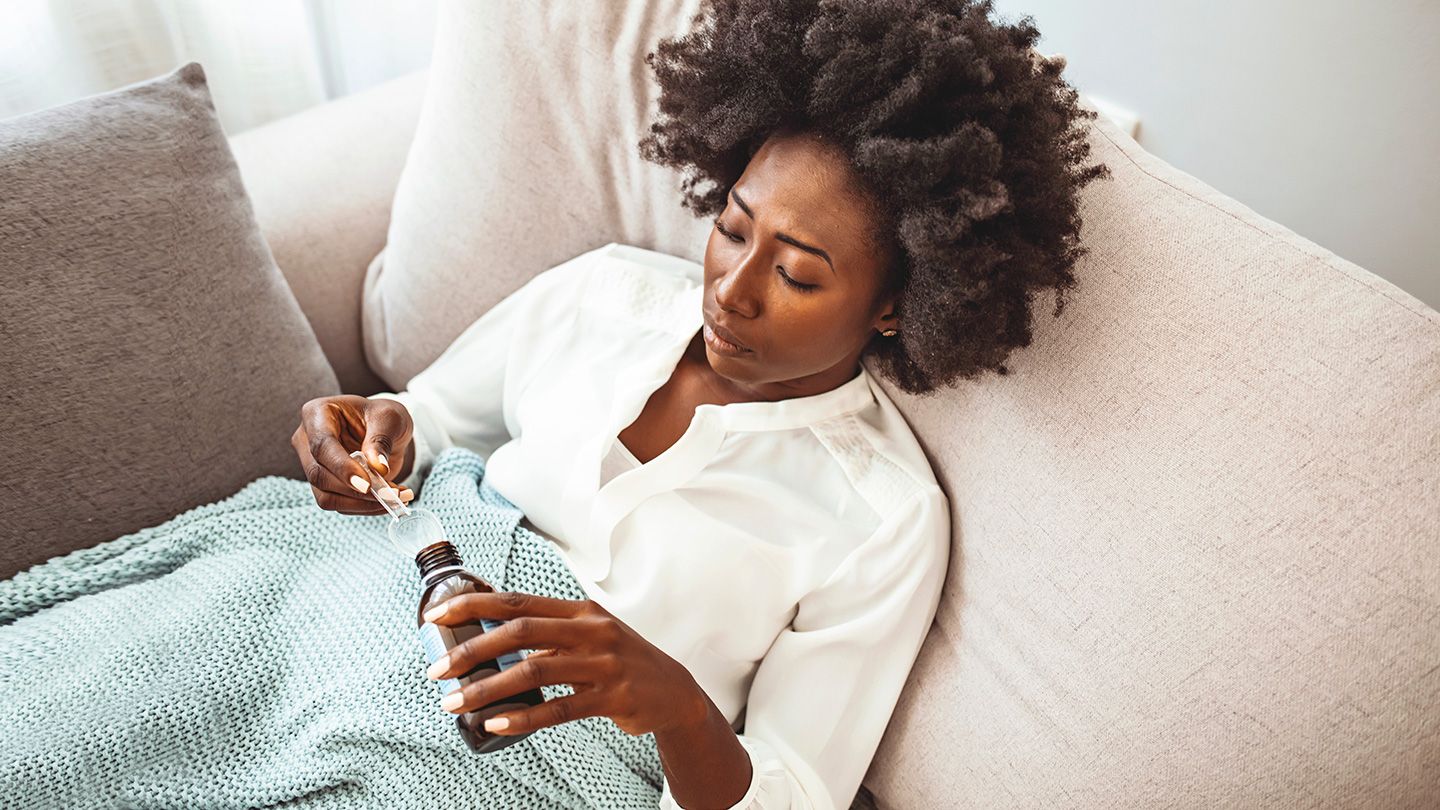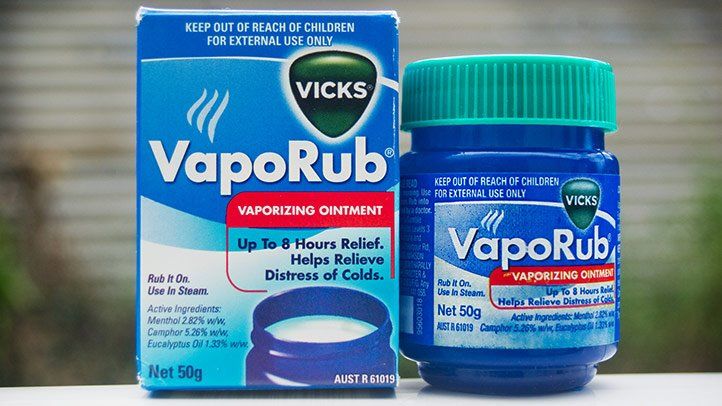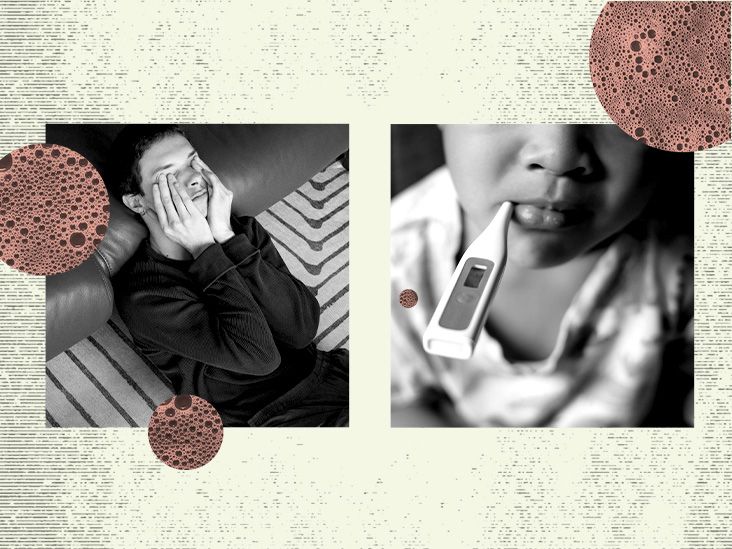Treating Cold Symptoms With Ibuprofen and NyQuil
When you're suffering from a bad cold, all you want is some relief from your stuffy nose, sore throat, headaches and body aches. Many people reach for over-the-counter medications like NyQuil and ibuprofen to help ease their symptoms. But is it safe to take these two medications together?
How NyQuil and Ibuprofen Work
NyQuil contains a combination of ingredients like acetaminophen, dextromethorphan, doxylamine succinate and phenylephrine. Acetaminophen is a pain and fever reducer while dextromethorphan suppresses coughs. Doxylamine succinate is an antihistamine that tackles cold symptoms like runny noses and sneezing. Phenylephrine is a decongestant that works to relieve stuffy noses and sinus pressure.
Ibuprofen is a nonsteroidal anti-inflammatory drug (NSAID) used to reduce fever, pain and inflammation associated with colds and flu. It works by blocking enzymes that cause swelling and pain.
Is It Safe to Mix NyQuil and Ibuprofen?
The answer is yes, you can generally take NyQuil and ibuprofen together safely but there are a few precautions you should take.
Avoid Overdosing on Acetaminophen
One of the active ingredients in NyQuil is acetaminophen, a common pain and fever reliever. Ibuprofen does not contain any acetaminophen. However, you'll want to be mindful of your total acetaminophen intake from all sources over the course of a day.
Taking too much acetaminophen can result in permanent liver damage. Adults should take no more than 3,000 milligrams of acetaminophen per day from all medications combined.
Since NyQuil liquid contains 650 milligrams of acetaminophen per serving, make sure to factor that into your daily limit if you plan to take other acetaminophen-containing meds.
Don't Drink Alcohol When Taking These Medications
You should avoid consuming alcohol when taking NyQuil or ibuprofen. Alcohol interacts with the dextromethorphan in NyQuil and can greatly intensify side effects.
Alcohol also further irritates the stomach when taking ibuprofen increasing the chance of ulceration and bleeding.
Reduce Stomach Issues With Careful Use
Since NSAIDs like ibuprofen can sometimes cause nausea, stomach pain or gastritis, you'll want to take some preventative measures if taking for more than a few days:
- Always take ibuprofen with food
- Avoid laying down shortly after taking ibuprofen
- Talk to your doctor if you have a history of GI ulcers or bleeding
What Provides Better Cold and Flu Relief - NyQuil or Ibuprofen?
So between NyQuil and ibuprofen, which one generally works better for common cold and flu symptoms?
NyQuil May Work Better for Nighttime Symptoms
The ingredients in NyQuil like dextromethorphan, doxylamine and acetaminophen make it very effective for nighttime symptom relief from both colds and flu.
The drowsiness caused by doxylamine succinate relieves insomnia and allows you to get the sleep needed to recover. Dextromethorphan also suppresses nighttime coughing allowing for rest.
Ibuprofen Helps More With Body Aches
Ibuprofen can help relieve headaches, fevers and general body aches associated with viral infections better than NyQuil. The anti-inflammatory properties of ibuprofen helps ease sinus pressure and sore throat pain as well.
Keep in mind though that NyQuil liquid does contain acetaminophen which also works as a pain reliever and fever reducer similar to ibuprofen. So NyQuil offers some of the benefits of ibuprofen through the acetaminophen component.
Consider Taking Both for Comprehensive Relief
The ingredients in NyQuil are very effective at minimizing nighttime cold and flu symptoms. Meanwhile, ibuprofen works great for daytime body aches and fevers.
Since the medications work in different ways, many doctors actually recommend taking OTC flu medications together with ibuprofen for the most complete relief possible.
Just don't forget the safe dosage limits and alcohol warnings when stacking meds.
Treating Colds and Flu Without Medication
While OTC flu medications can certainly help ease the misery of colds, you can also find relief through some simple self-care methods:
Rest and Hydrate Your Body
Getting extra rest allows your body to direct more energy towards fighting off an infection. Staying well hydrated also helps thin out excess mucus.
Use a Humidifier and Saline Rinse
Running a humidifier can soothe sore sinuses and airways. Rinsing with a saline solution also thins mucus secretions and clears nasal passages.
Soothe Your Throat and Coughs
Warm broth, herbal tea, honey and cough drops can all help calm sore throats and coughs.
Bring Down Fevers
Fevers can be lowered without medication by taking a lukewarm bath and dressing lightly.
When to See Your Doctor About Cold and Flu Symptoms
While home treatment is fine for regular colds, you'll want to make an appointment with your doctor if you experience:
- Symptoms lasting more than 10 days
- Shortness of breath or difficulty breathing
- Chest or abdominal pain
- Signs of dehydration like dizziness
- A fever above 103 F (39.4 C)
Seeing a doctor can determine if you may have a secondary infection that requires antibiotics or other targeted treatment.
Disclaimer: This article is for informational purposes only and does not constitute medical advice. Always consult with a healthcare professional before starting any new treatment regimen.
Related Coverage
Examining the potential impact of NyQuil on blood pressure levels, especially for high-risk groups like the elderly, those with hypertension, heart disease, or who are pregnant....
Discover if Vicks VapoRub is an effective remedy for nausea relief. Explore the science behind menthol, aroma, and anecdotal evidence. Learn about proper usage and alternative natural remedies....
Get the exact Relenza dosage for flu treatment and prevention, plus form, strength, inhaler use, safety tips, and dosing schedule....
Taking ibuprofen together with Dayquil can exceed the daily acetaminophen limit and lead to liver damage. Learn safe alternatives for cold symptom relief....
Learn how using ice packs can bring safe, soothing relief for painful sinus pressure and headaches. Get tips on proper ice pack use to reduce swelling....
Putting Vicks VapoRub in your nose seems like a fast sinus relief hack. But this risky use can cause painful irritation, breathing issues, and toxicity....
Flu-like symptoms can arise from many causes. Learn triggers, how to differentiate the flu, and simple steps to feel better fast....
Discover the surprising power of an onion on your bedside table, a natural remedy that harnesses the anti-inflammatory and decongestant properties of onions to provide soothing relief from persistent coughs and respiratory ailments....
Honey remains a top natural cough remedy for fast relief day or night. Keep a jar handy to instantly soothe sore throats, reduce coughing fits, allow restful sleep....
Discover 8 natural remedies to help relieve flu symptoms like hydration, zinc, elderberry, vitamin C, chicken soup, humidifiers, saltwater gargles and herbal tea....









